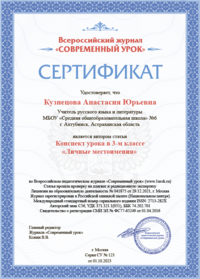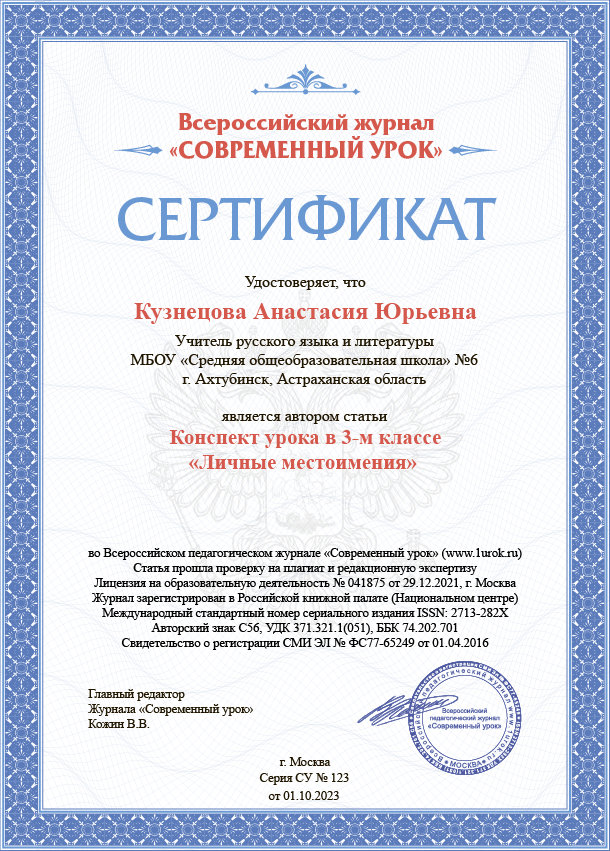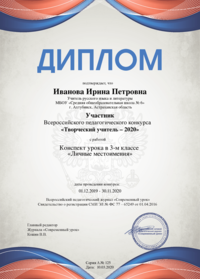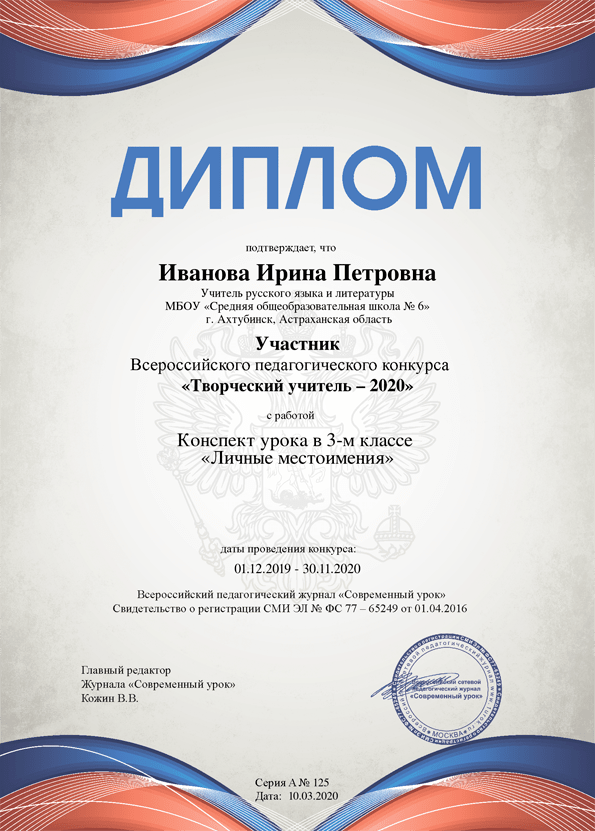Разработка урока по английскому языку ''Understanding Shakespeare'' для старшей школы
Автор: Шакиров Ильшат Махмутович
Организация: БРГИ №1 им. Р. Гарипова
Населенный пункт: Республика Башкортостан, г.Уфа
Understanding Shakespeare
Класс 10-11
Тема урока: «Understanding Shakespeare».
Цель урока: развитие коммуникативной компетенции учащихся по теме “Инверсия” на основе известных цитат Шекспира.
Задачи урока:
Познавательный аспект:
знакомство с популярными цитатами Шекспира
Образовательные:
формировать языковые, речевые и коммуникативные компетенции при развитии и контроле сформированности компетенций аудирования, чтения, и говорения;
активизировать употребление в речи ранее изученных лексических единиц по теме «Literature»,
совершенствовать и расширять навыки выражения своего мнения по теме;
Развивающие:
активизировать учебно-познавательную деятельность учащихся и расширить их кругозор;
развитие способности к выявлению языковых закономерностей, развитие и автоматизирование лексических навыков по теме
развивать навыки успешного самостоятельного решения проблемы;
развивать умения социального взаимодействия;
развивать критическое мышление учащихся;
развивать эмоциональную отзывчивость.
Воспитательные:
воспитать активность, самостоятельность, ответственность, культуру общения;
формировать мировоззрение учащихся и логическое мышление;
формировать систему нравственных межличностных отношений, навыки работы в творческой
группе;
формировать доброе отношение друг к другу.
повысить мотивацию к изучению английского языка.
УУД: Коммуникативные:
проявление активности во взаимодействии для решения коммуникативных и познавательных
задач;
Познавательные:
выявление достоверной (противоречивой) информации в процессе работы с одним или
несколькими источниками;
Регулятивные:
выбор учебных действий в соответствии с поставленной задачей и условиями её реализации;
адекватное восприятие исправления ошибок;
оценивать правильность решения учебной задачи, собственные возможности;
Личностные:
оптимизм в восприятии собеседника;
позитивная моральная самооценка;
навыки сотрудничества в разных ситуациях общения.
Тип урока: Урок изучения нового и формирования первоначальных умений
Оборудование: Компьютер, Teachtouch, компьютерная презентация к уроку, раздаточный материал, видео.
Применяемые технологии: Технология коммуникативного обучения иноязычной культуре, использование эмоционально и когнитивно-ориентированных форм обучения.
Формы работы: индивидуальная работа, парная работа, групповая работа, фронтальная работа.
Методы обучения: объяснительно-иллюстративные; частично-поисковые, проблемно-эвристические.
Интернет- ресурсы: https://learnzillion.com/lesson_plans/20147/lesson
Ход урока.
I. Организационный момент. Мотивация к учебной деятельности.
Teacher: Good morning, children! I’m glad to see you. How are you? Sit down, please.
Students: Good morning, teacher! We are glad to see you too.
T: Please, children, look at the lines on the blackboard/screen which are pretty famous and are taken from well-known works. What are the names of these works? Who is the author of these lines?
|
“To be, or not to be: that is the question: No more;” |
“All the world's a stage, His acts being seven ages.” |
Ss: I think the first quote is from Hamlet. The author is William Shakespeare.
Ss: The second quote is familiar. It was written by Shakespeare, too. We don’t know the work.
T: Great. You are right that the author of these lines is the greatest English poet William Shakespeare. You’ve been correct saying the first quote is from Hamlet. The second one is from Shakespeare’s comedy “As you like it”.
II. Целеполагание.
T: What are we going to do in our lesson?
The aims of our lesson are
1. To watch, listen, find out the information about inversion, a grammar method used by Shakespeare in his works.
2. To practise transforming inverted sentences into simple ones.
3. To talk about the ideas in Shakespeare’s lines .
4. To express opinions about issues mentioned in Shakespeare’s works.
III. Актуализация опорных знаний. (Тест)
T: What do you know about William Shakespeare?
I will give you a test which you are to do in 5 minutes. Then we shall discuss your answers.
1 Who was on the throne of England when Shakespeare was born?
A) Henry VIII B) Elizabeth I C) James I
2 On what day in 1616 did Shakespeare die?
A) Christmas Day B) St George's Day C) St Andrew's Day
3 Where did Shakespeare grow up?
A) London B) Oxford C) Stratford-upon-Avon
4 Who was Shakespeare's wife?
A) Anne Hathaway B) Mary Arden C) Judith Shakespeare
5 Why were Shakespeare's plays published?
A) Popular demand B) His friends paid for it C) For use in theatres
6 What did Shakespeare famously leave his wife in his will?
A) His best bed B) His second-best bed C) His bear
7 Which country did Shakespeare set Twelfth Night, The Merchant of Venice and Romeo and Juliet in?
A) England B) Spain C) Italy
8 Why is Banquo in Macbeth shown as good and wise?
A) Because he was
B) Because the King was descended from him
C) Because Shakespeare played Banquo
9 What do the history plays show?
A) The version of history the monarch would like
B) The truth
C) Shakespeare's memories of history lessons at school
10 Where did Shakespeare get the story of Romeo and Juliet from?
A) He made it up B) It was a true story C) He borrowed it from an Italian writer
(Ответы: 1B 2B 3C 4A 5B 6B 7C 8B 9A 10C)
T: Now let’s see what answers you have and if they are correct.
(Учитель комментирует ответы на вопросы)
IV. Основной этап урока. Работа по теме урока.
1. Первичное восприятие и усвоение нового материала. (Просмотр видеоматериала)
T: All right, children. Many people believe William Shakespeare is the best British writer of all time. His many works are about life, love, death, revenge, grief, jealousy, murder, magic and mystery. He wrote the blockbuster plays of his day - some of his most famous are Macbeth, Romeo and Juliet, and Hamlet. Unfortunately, it feels hard for many people to understand his language. One of the reasons of that is the fact that he used inversion.
T: Now I offer to watch some video which will explain to you what inversion is and what can we do to try to help our understanding Shakespeare.
(Учащиеся смотрят видеоматериал по ссылке https://learnzillion.com/lesson_plans/20147/lesson)
T: Now let me check you’ve understood everything in this video. Why is it sometimes difficult to understand Shakespeare?
Ss: His sentences are different from modern day sentence structure.
Ss: He places his words in a different order.
Ss: In his sentences the object is before the verb which is followed by the subject.
T: Right, and such order in the sentence we call inversion, the inversion technique. And what shall we do to make his sentences less difficult to read?
Ss: We should change the word order in the line.
Ss: We put the object after the verb which follows the subject
2. Активизация грамматических навыков. (Работа в парах)
T: Now let’s practise this technique of inverting the line to the subject+verb+object structure. You will work in pairs, each pair will get some lines from Shakespeare’s plays and sonnets. You are to find the examples of inversion and try to transform them into sentences where the object comes after the verb.
Pair 1: Sometime too hot the eye of heaven shines,
And often is his gold complexion dimmed,
And every fair from fair sometime declines,
By chance, or nature’s changing course untrimmed:
So long as men can breathe, or eyes can see,
So long lives this, and this gives life to thee.
Pair 2: GLOUCESTER: Now is the winter of our discontent
Made glorious summer by this sun of York;
And all the clouds that lour’d upon our house
In the deep bosom of the ocean buried.
Pair 3: “Of honourable reckoning are you both;
And pity ‘tis you lived at odds so long.
But now, my lord, what say you to my suit?”
Pair 4: “From fairest creatures we desire increase,
That thereby beauty's rose might never die,
But as the riper should by time decease,
His tender heir might bear his memory..”
Pair 5: MACBETH: “If’t be so, For Banquo’s issue have I fil’d my mind,
For them the gracious Duncan have I murther’d,
Put rancors in the vessel of my peace
Only for them, and mine eternal jewel
Given to the common enemy of man,
To make them kings -the seed of Banquo kings!
Rather than so, come, Fate, into the list,
And champion me to the utterance!”
(Учащиеся находят примеры инверсии и переделывают предложения)
V. Развитие навыка устной речи.
T: Well done! Now I am certain of you being able to comprehend Shakespeare’s lines. Let’s see how it works. I am going to divide you into groups of 3 and 4. Each group will be given a Shakespeare excerpt. Your task is to read this fragment and find out what issues are revealed in it. If you see inversion in the lines, you know now how to deal with it. Start working, please!
Group 1
What's in a name? That which we call a rose
By any other name would smell as sweet;
So Romeo would, were he not Romeo call'd,
Retain that dear perfection which he owes
Without that title. Romeo, doff thy name,
And for that name which is no part of thee
Take all myself.
Group 2
"All the world's a stage,
And all the men and women merely players:
They have their exits and their entrances;
And one man in his time plays many parts."
Group 3
O hell! What have we here?
A carrion Death, within whose empty eye
There is a written scroll! I'll read the writing.
All that glitters is not gold;
Often have you heard that told:
Many a man his life hath sold
But my outside to behold:
(Учащиеся в группах читают и обсуждают отрывки)
T: I think it’s time we stopped our discussions. What ideas have you found in these immortal lines?
Group 1 was reading the excerpt from Romeo and Juliet, what do you have to say?
Ss: Juliet is talking about her love for Romeo, and saying that it shouldn't matter that Romeo is a Montague. It’s only a name, she says.
Ss: She makes a comparison with a rose – even if a rose had a different name, it would still smell as sweet.
T: Good job! What about Group 2 who were busy with a fragment from As you like it? What conclusion have you made?
Ss: The stage is life itself, and the people are performers.
Ss: Their performance can be seen as their actions in life. The exits are death and the entrances birth.
Ss: People are playing many parts - child, student, husband, wife, parent, etc
T: Well done! Let’s listen to Group 3 with an extract from The Merchant of Venice.
Ss: The play means that appearances can sometimes be deceiving.
Ss: We can conclude that because things are shiny like gold it doesn’t mean they are valuable.
Ss: We could so easily be taken in by shiny objects, both in the material sense and in more abstract areas like relationships.
T: You have done a fantastic job! You could become real experts in Shakespeare’s writings.
Write down the homework in your notebooks.
Choose an excerpt from those we used in our lesson and learn by heart.
VI. Рефлексия.
T: To sum up, what have you learnt in the lesson?
Ss: I have learnt something about the life of Shakespeare.
Ss: I have learnt what inversion is.
Ss: I have learnt how to transform sentences with inversion into understandable structures.
Ss: I have learnt what Shakespeare wrote about in his plays.
Ss: I have learnt what plays Shakespeare wrote.
Ss: I have learnt many interesting things about Shakespeare. I want to read his plays.
T: In conclusion, I`d like to say that Shakespeare is undeniably the greatest writer. His plays give us the greatest sense of the value of human life, of how people live, of how people love and of the importance of human relationships than any other writers of his time or of any other time. Today you’ve made your first step to understanding Shakespeare. I hope it will contribute to your personal development.
The lesson is over. Thank you for taking an active part in it. Good-bye.
Использованные источники
- https://learnzillion.com/lesson_plans/20147/lesson
- https://literarydevices.com/inversion/
- https://askinglot.com/why-does-shakespeare-use-inversions
- https://askinglot.com/open-detail/386858
- https://literarydeviceslist.com/inversion/
- https://www.biography.com/news/shakespeares-most-famous-quotes

 БЕСПЛАТНЫЕ семинары
БЕСПЛАТНЫЕ семинары





